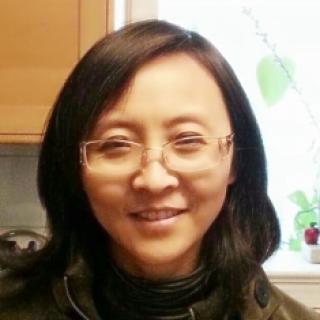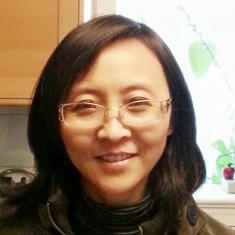
Binwu Tang, Ph.D.
- Center for Cancer Research
- National Cancer Institute
- Building 37, Room 4032
- Bethesda, MD 20892
- 240-760-6806
- tangb@mail.nih.gov
RESEARCH SUMMARY
Dr. Tang's major research interest is focused on understanding molecular mechanisms the dual role of TGF-beta in breast cancer. Her current research program uses innovative imaging, genomic and animal modeling methods to address the role of TGF-betas in regulating breast cancer stem cells.
Areas of Expertise

Binwu Tang, Ph.D.
Research
Dr. Tang's major research interest is focused on understanding molecular mechanisms the dual role of TGF-beta in breast cancer. Dr. Tang formally tested the hypothesis that TGF-beta can switch from tumor suppressor to prometastatic factor during the course of carcinogenic progression within a given cell lineage. We have shown that decreased TGF-beta responsiveness alone cannot initiate tumorigenesis, but that it can cooperate with an initiating oncogenic lesion to make a premalignant breast cell tumorigenic and a low-grade tumorigenic line more aggressively tumorigenic. However, in a high-grade tumorigenic cell line, reduced TGF-beta responsiveness has no effect on primary tumorigenesis, but significantly reduces metastatic efficiency. Our results demonstrate a causal role for loss of TGF-beta response in promoting breast cancer progression up to the stage of advanced, histologically aggressive, but non-metastatic disease, and suggest that at that point TGF-beta switches from tumor suppressor to pro-metastatic factor. We also showed that endogenous TGF-beta has the potential to suppress tumorigenesis through a novel mechanism, involving effects at two distinct levels in the hierarchy of cellular progeny that make up the epithelial component of the tumor. First, TGF-beta reduces the size of the putative cancer stem or early progenitor cell population, and second it promotes differentiation of a more committed, but highly proliferative, progenitor cell population to an intrinsically less proliferative state. We further show that reduced expression of the type II TGF-beta receptor correlates with loss of luminal differentiation in a clinical breast cancer cohort, suggesting that this mechanism may be clinically relevant. At a molecular level, the induction of differentiation by TGF-beta involves down-regulation of Id1, and forced overexpression of Id1 can promote tumorigenesis despite persistence of the antiproliferative effect of TGF-beta. These data suggest new roles for the TGF-beta pathway in regulating tumor cell dynamics that are independent of direct effects on proliferation.
Recently, we have identified a role for TGF-beta in regulating the cancer stem cell population, and we have developed a novel fluorescent stem cell reporter which allows us to visualize the cancer stem cell in its native habitat with contextual cues intact. Understanding how TGF-beta modulates cancer stem cell dynamics should give new insights into how to target this therapy-resistant tumor cell subpopulation.
Publications
- Bibliography Link
- View Dr. Tang's PubMed Summary.
A flexible reporter system for direct observation and isolation of cancer stem cells
Transforming growth factor-beta can suppress tumorigenesis through effects on the putative cancer stem or early progenitor cell and committed progeny in a breast cancer xenograft model
TGF-beta switches from tumor suppressor to prometastatic factor in a model of breast cancer progression
Loss of responsiveness to transforming growth factor beta induces malignant transformation of nontumorigenic rat prostate epithelial cells
Transforming growth factor-beta1 is a new form of tumor suppressor with true haploid insufficiency
Biography

Binwu Tang, Ph.D.
Dr. Binwu Tang graduated from Beijing Medical University. She received her Ph.D. degree in Pharmacology from Georgetown University Graduate School. From 1996 to 2004, Dr. Tang worked at Lab of Cell Regulation and Carcinogenesis, National Cancer Institute in Bethesda, MD as postdoctoral fellow and research fellow. She currently works with Dr. Lalage Wakefield in Laboratory of Cancer Biology and Genetics in NCI as a staff scientist. Dr. Tang was one of the recipients for NCI Director Research Innovation Award in 2007.